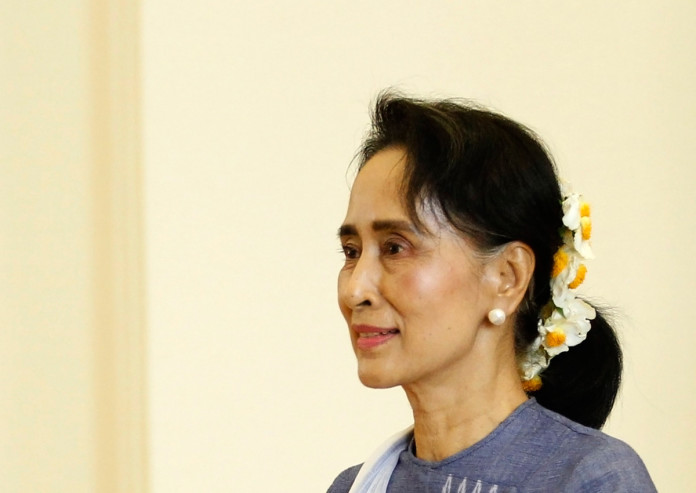Vientiane – Myanmar’s newly installed civilian leader Aung San Suu Kyi will visit the United States next week, US President Barack Obama said Tuesday.
Plans for a visit had previously been announced in July but no date had been given by either side.
During a speech in Laos, Obama revealed Suu Kyi’s trip to Washington was imminent.
“I look forward to welcoming State Counsellor Aung San Suu Kyi to the White House next week as we stand with the people of Myanmar in their journey towards pluralism and peace,” he said.
The invitation reinforces Suu Kyi’s primacy on the international stage as the real head of a government she is technically barred from leading.
Despite winning a landslide in last November’s elections, which ended decades of brutal military rule, the Nobel laureate is banned from being president by a junta-era constitution.
Instead she has taken the role of foreign minister and created a new position for herself as state counsellor. She has also appointed long term friend and ally, Htin Kyaw, to be a proxy president.
Obama and Suu Kyi first met in 2012 shortly after the veteran dissident was released from house arrest where she had spent much of the last two decades under junta rule.
He also met Suu Kyi during a visit to Myanmar in 2014, when he criticised the ban on her taking the presidency.
Myanmar’s peaceful transition from military to civilian rule has been hailed in a world where such transitions seem rare.
But the military, who spent decades brutalising the population and enriching themselves, remain enormously influential.
Officers are still guaranteed a quarter of legislative seats, giving them a veto on constitutional change, while the military retains control of the crucial home, border and defence ministries.
They also control huge business conglomerates, with some key army-linked figures still under US sanctions.
There have been suggestions Washington may lift some of those sanctions during Suu Kyi’s visit, something rights groups have balked at.
“US sanctions are focused on the Burmese generals and their cronies in order to encourage democratic reforms,” said John Sifton, from Human Rights Watch.
“They shouldn’t be fully lifted until the democratic transition is irreversible.”






